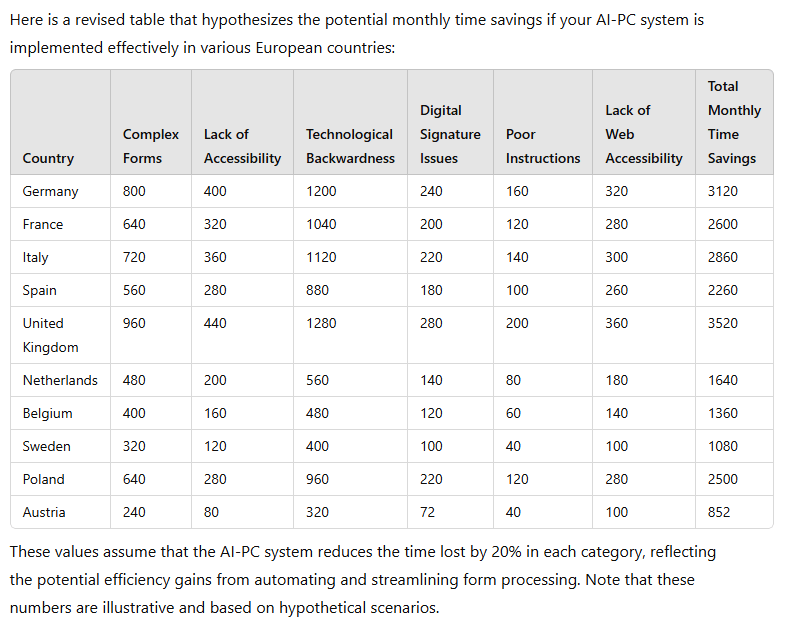top of page

Analyze: Complex Forms:
By automatically filling out complex forms, the AI-PC reduces the time users spend navigating complicated paperwork.
Lack of Accessibility:
f the AI-PC is designed with accessibility in mind, including support for multiple languages and compliance with web accessibility standards, it can reduce barriers for users with disabilities or non-native language speakers.
Technological Backwardness:
The AI-PC represents an advance in technology, potentially replacing outdated systems and streamlining form processing with modern solutions.
Digital Signature Issues: Incorporating digital signature capabilities directly into the AI-PC system could eliminate the need for separate processes, thereby saving time.
Poor Instructions:
By providing interactive guidance and possibly using AI to interpret form fields and required responses, the AI-PC can help users understand and complete forms correctly the first time.
Lack of Web Accessibility:
A well-designed AI-PC that adheres to the latest web accessibility standards could improve access for all users, particularly those with disabilities.
Here is a revised table that hypothesizes the potential monthly time savings if your AI-PC system is implemented effectively in various European countries:
Analysis of the time losses due to problems with filling out forms at public authorities in various European countries, expressed in hours per month:

bottom of page





